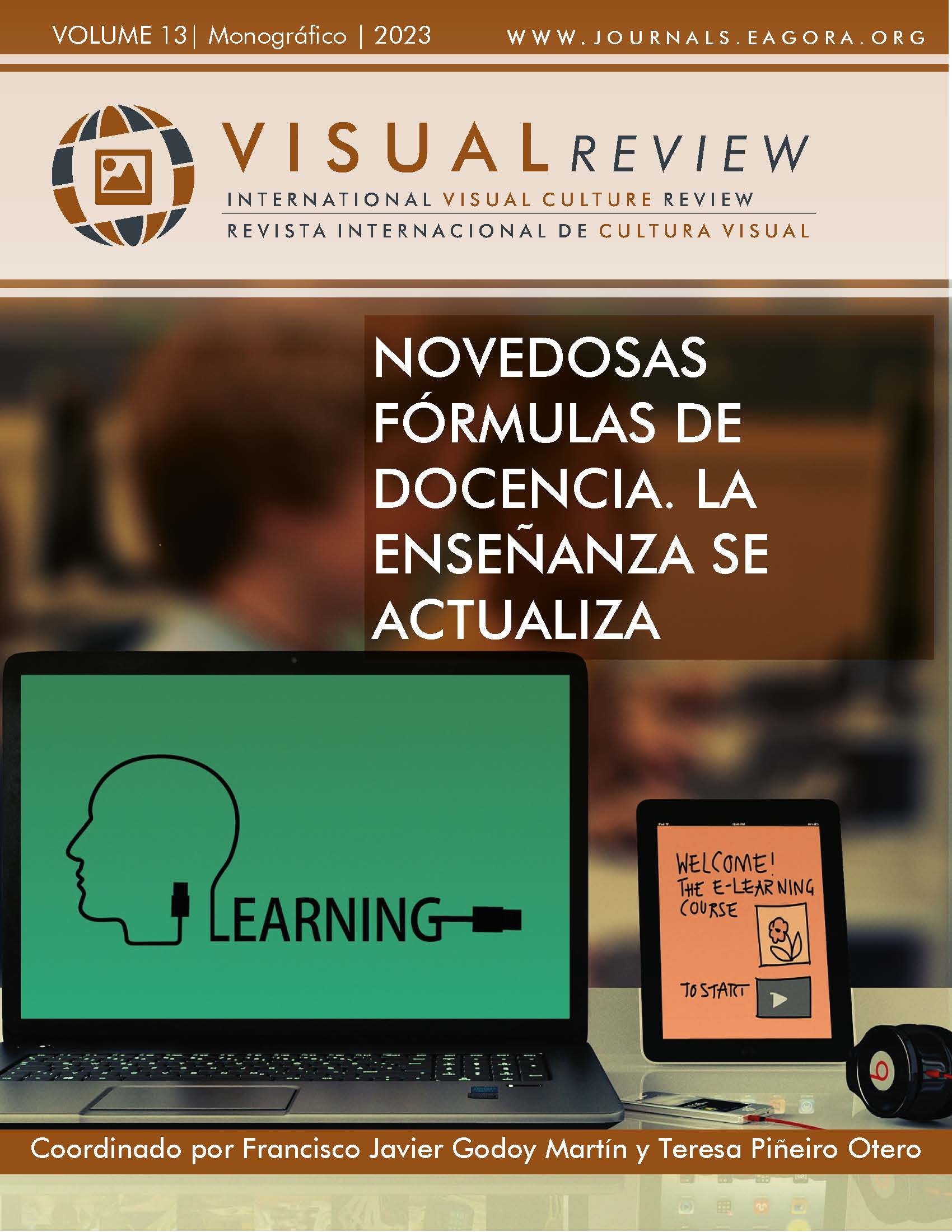Effects of the older student in digital formats
Digitalización del proceso de aprendizaje en un aula sénior
DOI:
https://doi.org/10.37467/revvisual.v10.4578Keywords:
Ageing, Digitalization, Distance education, Educational gerontology, Universities, CIPP Model, Decision makingAbstract
To carry out this work, an educational evaluation has been used from the CIPP model proposed by Stufflebeam and Shinkfield (1987). The sample is made up of 55 elderly people of Spanish nationality, aged between 55 and 82 years. The distribution in relation to gender groups 73% women and 27% men. Due to marital status, 36.3% are married, 45.4% are widowed, and 18.1% are single. The interpretation of pictograms in an EVEA is highlighted as an important visual and orientation element for correct handling by older students.
Downloads
Global Statistics ℹ️
|
425
Views
|
273
Downloads
|
|
698
Total
|
|
References
Bunbury Bustillo, E., Pérez Calle, R. y Osuna-Acedo, S. (2022). Las Competencias Digitales en personas mayores: de amenaza a oportunidad. Vivat Academia, Revista de Comunicación, 155, 173-195. https://doi.org/10.15178/va.2022.155.e1383 DOI: https://doi.org/10.15178/va.2022.155.e1383
Cabedo, A. (2010). La educación permanente: la Universidad y las personas mayores. Publicacions de la Universitat Jaume I.
De Miguel, M. (2009). Metodologías de enseñanza y aprendizaje para el desarrollo de competencias. Orientaciones para el profesorado universitario ante el Espacio de Educación Superior. Alianza.
Erikson, E. (1982). El ciclo vital completado. Paidós.
Erikson, E., Erikson, J. M. & Kivnick, H. (1994). Vital involvement in old age. Norton.
Gandasegui, V. D. (2011). Mitos y realidades de las redes sociales. Revista de Ciencias Sociales. Prisma Social, 6, 340-366.
Martínez-Huamán, E., Quispe Morales, R. A., Gutiérrez Mendoza, J., & García Rivas Plata, C. E. (2022). Gestión educativa y competencias: concepciones del docente universitario. Revista Venezolana De Gerencia, 27(7), 266-280. https://doi.org/10.52080/rvgluz.27.7.18 DOI: https://doi.org/10.52080/rvgluz.27.7.18
Katz, J. M. (2003). Los caminos hacia una sociedad de la información en América Latina y el Caribe. Naciones Unidas.
Lorente, X., Fernández, M. C. y Rodes, M. (2017). Empoderamiento social y crítico de un grupo de adultos-mayores a partir de la generatividad. En A. Fernández (Coord.) Pantallas que educan (pp. 267-278). Tecnos.
Lorente, X. (2012). Disseny, aplicació i avaluació d‘un programa universitari per a gent gran amb suport d‘un EVEA. [Tesis Doctoral, Universidad Autónoma de Barcelona]. Repositorio Institucional UAB. http://hdl.handle.net/10803/107896
Pérez, J., Abellán, A., Aceituno, P. y Ramiro, D. (2020). Un perfil de las personas mayores en España, 2020. Indicadores estadísticos básicos. Envejecimiento en Red, 25. http://envejecimiento.csic.es/documentos/documentos/enred-indicadoresbasicos2019.pdf
Stufflebeam, D. L. y Shinkfield, A. J. (1987). Evaluación sistemática. Guía práctica y teórica. Paidós.
Webster, F. (2014). Theories of the information society. Routledge. DOI: https://doi.org/10.4324/9781315867854
Zabaltegui, A., Escobar, M.A., Cabrera, E., Gual, M.P., Fortuny, M., Mach, G., Ginesti, N., & Narbona, P. (2006). Análisis del programa educativo PECA para mejorar la calidad de vida de las personas mayores. Originales. Atención Primaria, 37(5), 260-265. https://doi.org/10.1157/13086310 DOI: https://doi.org/10.1157/13086310
Downloads
Published
How to Cite
Issue
Section
License
Those authors who publish in this journal accept the following terms:
-
Authors retain copyright.
-
Authors transfer to the journal the right of first publication. The journal also owns the publishing rights.
-
All published contents are governed by an Attribution-NoDerivatives 4.0 International License.
Access the informative version and legal text of the license. By virtue of this, third parties are allowed to use what is published as long as they mention the authorship of the work and the first publication in this journal. If you transform the material, you may not distribute the modified work. -
Authors may make other independent and additional contractual arrangements for non-exclusive distribution of the version of the article published in this journal (e.g., inclusion in an institutional repository or publication in a book) as long as they clearly indicate that the work was first published in this journal.
- Authors are allowed and recommended to publish their work on the Internet (for example on institutional and personal websites), following the publication of, and referencing the journal, as this could lead to constructive exchanges and a more extensive and quick circulation of published works (see The Effect of Open Access).













